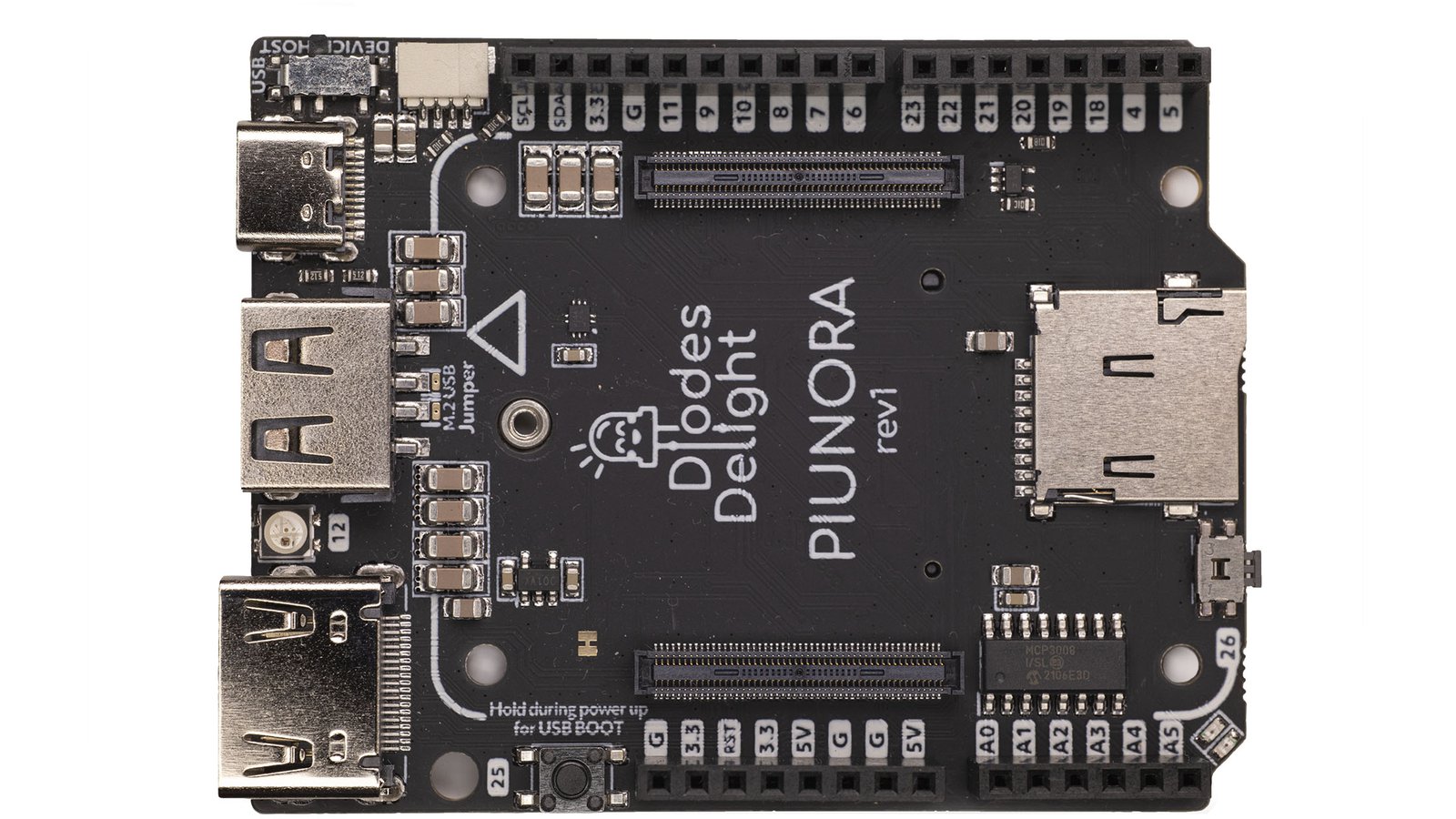
Piunora Pro
A compact, feature-rich CM4 carrier board

Piunora Lite
Perfect if you need the slimmest possible form factor. Includes all features of Piunora Pro except for the camera connector and the PCI-e M.2 port.
Crowd Supply’s Helen Leigh chats with Timon Skerutsch (a.k.a. Timonsku), the engineer who made the Piunora. Join them as they discuss hardware design, open source hardware, manufacturing issues, and figuring out how to deal with CE certification as an independent hardware designer. We’ll also hear about some of Timon’s other awesome projects, including A Damn Linux Tablet, which won "Best Design" in 2019’s Hackaday Prize contest.
This episode is a must-listen for anyone who is contemplating bringing their own project to life, as Timon shares all kinds of insights into things you might not consider as an engineer or designer. There’s discussion of how to choose a manufacturer, best practices for prototyping and beta-testing, and all the little details like packaging and graphics and so much more.
About Piunora
Piunora is a compact, easy-to-use development board for electronics prototyping with Linux. As a carrier board for the Raspberry Pi Compute Module 4 (CM4), Piunora is essentially a tiny version of the Raspberry Pi 4 Single Board Computer (SBC) with added flexibility to accommodate custom form factors. CM4-based devices like Piunora are fully compatible with software that was written for the Raspberry Pi 4, as long as that software accounts for the hardware peripherals in use. There are also versions of the CM4 that include eMMC memory, which is more reliable than a traditional SD card.
It may be small, but Piunora is packed with powerful peripherals that will come in handy for rapid prototyping and embedded machine-learning applications. Examples include an HDMI port, camera-input connectors, and PCI-e support, which is not present on a standard Raspberry Pi 4. Finally, the M.2 B-Key port on the rear of the board is not only useful for SSD storage, it can also host a diverse range of PCI-e expansion boards.

A compact, feature-rich CM4 carrier board

Perfect if you need the slimmest possible form factor. Includes all features of Piunora Pro except for the camera connector and the PCI-e M.2 port.